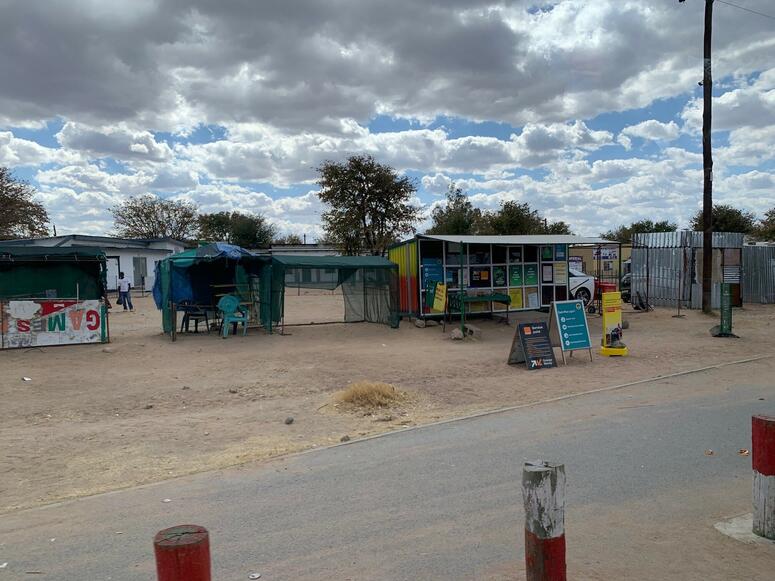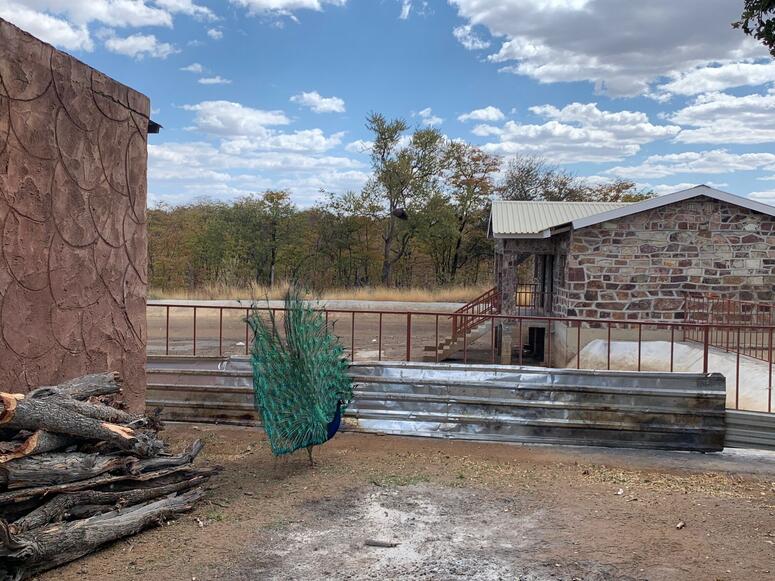Notes from the Field: Dr. Ian Tietjen in Africa, Part Two
Dr. Ian Tietjen is a Research Assistant Professor in Wistar’s Montaner Lab, where he investigates traditional African medicinal compounds’ potential for drug origination against viruses like HIV. Dr. Tietjen travels to Africa to work with traditional healers to better understand the function of these compounds.
If you haven’t started this series with part one, click here.
5 August 2023 – Our combi bus picked us up from the hotel and briefly stopped at the Gaborone airport to retrieve more of our team. We are here to pick up our guests from British Columbia, Canada who have been travelling for almost 48 hours nonstop: Marianne Ignace, Professor of Linguistics at SFU; Dr. Ron Ignace, a retired Chief of the Secwepemc First Nation of British Columbia; and their son Joe Ignace. With them are two Secwepemc traditional healers, Rhona Bowe and Rod Tomma, who are helping us engage and work with traditional healers.
In total, there are 13 of us. The ride from Gaborone to Tutume is mostly a smooth, paved, two-lane road, but it takes about seven hours of driving. The scenery is flat with lots of short, brambly trees; cows, goats, and donkeys amble up and down the side of the highway, and people are selling food, brooms, and gasoline along the side of the road. The sunset is dusty and orange, and it makes sharp silhouettes of the trees. With the sun setting, our goal is to get to Tutume before dark to avoid the many animals that wander the highway at night.
By the time we reach Tutume, the town and its stores have largely gone to sleep. Our big tour group is staying at the Shumba Lodge, so we are being housed and fed by local Qalose.
Tomorrow we will pick up the healers from their villages across the Tutume district and in Francistown, Botswana’s second largest city, about two hours away. Many people in Botswana rely on more than one medical system for their health: A Western doctor for medicines and treatments, and a community healer for medicines that provide wellness, mental health, and spiritual support. Surprisingly, many people in Botswana do not think highly of this unique knowledge, even though they may use it themselves or have practicing healers in their family.
In my experience, traditional healers have spent years learning about medicinal plants and their uses. When speaking to them, they often sound like pharmacists or scientists, and they use scientific and hypothesis-driven methods to understand and improve their plants. In addition to studying these plants, we want to help validate their uniqueness. If biomedical scientists and healers can combine their respective knowledge and work together constructively, I really believe we will discover new ways to improve health and wellness that are not being considered today.


